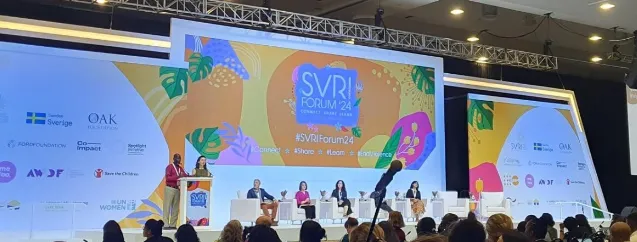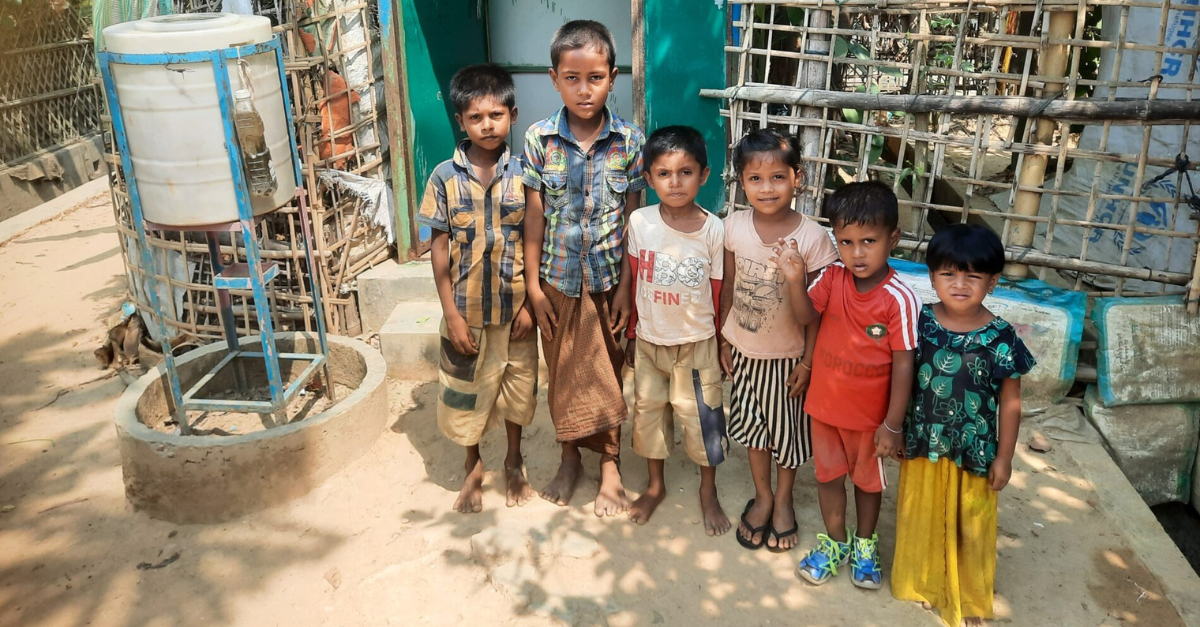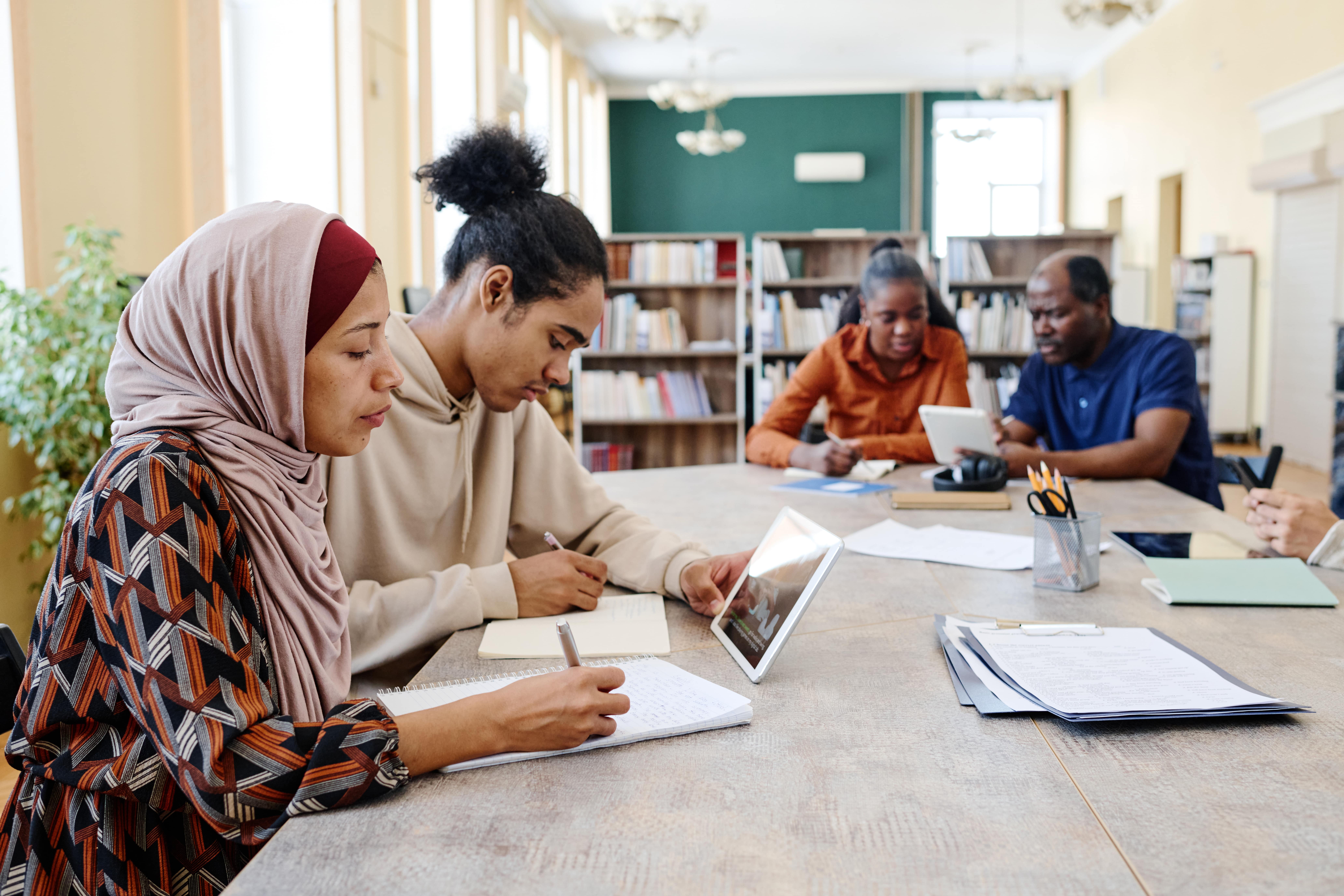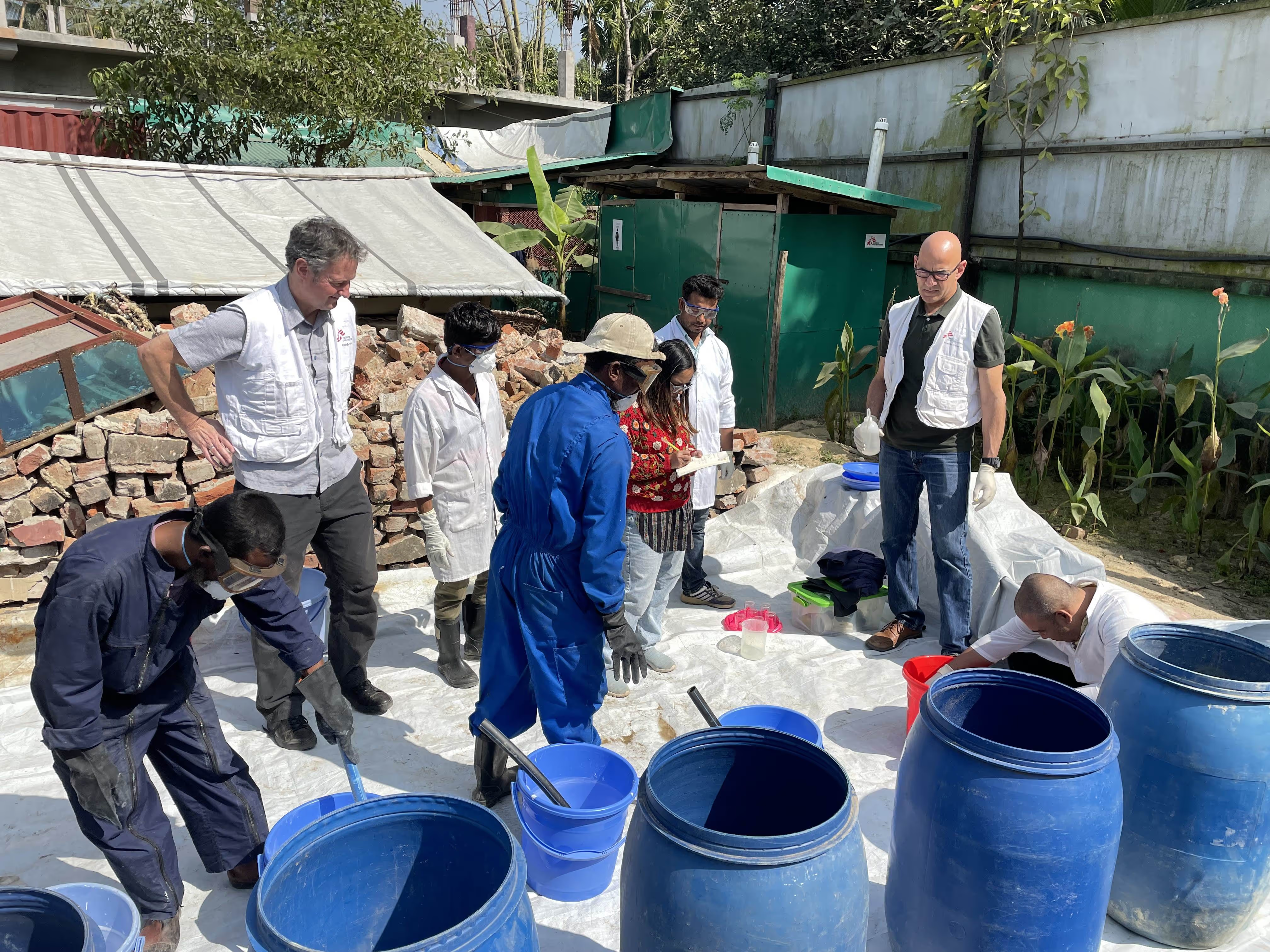Humanitarian innovations addressing gender-based violence are driving impact

The 16 Days of Activism on gender-based violence (GBV) is always a poignant time to reflect on how our action has impact. For decades, 25 November has been the International Day for the Elimination of Violence against Women, yet 45 years on from the global commitment to end violence against women still we witness a war on women’s bodies and a desperate need for effective humanitarian prevention and response.
In October, I represented Elrha at the Sexual Violence Research Initiative (SVRI) Forum, a global convention of researchers and practitioners, experts both through study and lived experience, with a substantial body of work in humanitarian settings. At our exhibition stall, we showcased pitch videos and shared information about a selection of the promising innovations whose development we have supported. Attending presentations of evidence and learning – funded by Elrha and others – I saw that through rigorous research and humanitarian innovation, collectively, we are identifying effective interventions that help address GBV in emergencies.
After a week of learning, sharing ideas and hearing updates on the impact of important GBV innovations, I’m sharing my top three takeaways from connecting with current and former grantees, and with members of our GBV technical working group.
Thousands of survivors are now accessing safe and methodical forensic documentation
Through MediCapt, survivors of GBV in Kenya and the Democratic Republic of Congo (DRC), are benefiting from secure, survivor-centred forensic digital documentation. MediCapt is both a product and process innovation, with training that accompanies the digital app. Processes within the app, such as seeking survivors’ consent, drive the empowerment of survivors during the documentation process.
Since 2020, when Elrha first funded MediCapt through our Journey to Scale accelerator, there’s been a near-exponential increase in the number of cases documented each year, from dozens per year to hundreds, and heading towards thousands. Clinicians have now gathered and safely stored digital forensic evidence from more than 4,000 cases using MediCapt. What’s more, professionally documented cases are progressing through the justice system. In DRC so far, out of 55 cases that had been documented using MediCapt and reached a judicial decision, 49 received positive judgements. Although the number of survivors going through a full judicial process remains low, the nearly 90% positive outcome rate underscores this innovation’s potential to strengthen accountability and reduce GBV.
Service availability must be matched by service quality: there’s a new tool to help with that
Our first GBV gap analysis, Opportunities for Innovation, identified the adaptation of standards for practical use as one of the four key challenges to address. In 2019, Elrha funded the co-design, involving women-led organisations in South Sudan and Myanmar, of a tool to see how progress is being made on adherence to key GBV standards. The project completed in 2022 and last year the GBV Area of Responsibility (AoR) published the resulting Monitoring and Evaluation Framework for the 16 GBV Minimum Standards.
Visiting the GBV AoR stall at the SVRI Forum, I learnt about the latest uptake of this tool, through its use as the basis for an interagency mission to Somalia focusing on the provision and quality of services from one-stop centres. Sharing her experience in a recent AoR call, the Regional Emergency GBV Advisor for East and Southern Africa, Jessica Gorham, said “for the past decade we’ve really put a lot of emphasis on the availability of services… [Now] it’s time to also look at the quality of services being delivered.” The framework is set to inform similar missions in other countries, with an upcoming East and Southern Africa Regional GBV AoR webinar which will say more about the value of the M&E Framework, its findings and applications.
The sensemaking survey approach helps makes sense of GBV risks in emergencies
There was a buzz of interest about the potential of the sensemaking approach for gathering analysis-ready data on GBV in emergencies. Elrha-funded work adapting sensemaking to humanitarian settings (in Lebanon and South America) has generated iterative innovation in how a methodology first developed for understanding organisational psychology could be used to produce real-time information about GBV in complex emergency settings without even asking a single direct question about gender-based violence. This pitch video introduces the methodology, and the project page gives more details including journal articles and reports based on the analysed data.
Missed us at SVRI? Read our research policy briefs and sign-up for our upcoming webinars
There were so many other equally important Elrha-funded projects represented at the SVRI Forum that it’s been hard just to highlight three. There’s the latest countries using the GBV M&E Toolkit, the basis of which was the Elrha-funded problem exploration in the Northwest Syria response. It’s been adopted now in Syria, Jordan and Iraq and there’s plans for Yemen next. And I haven’t mentioned research on stigmatisation as a result of intimate partner-violence (IPV), which drew interest from ICRC which has ongoing work exploring stigma. There was also research from refugee camps in Bangladesh and Tanzania showing, respectively, how the distribution of cooking fuel has an impact on IPV, and how an empowerment counselling intervention (ECI) can support pregnant women and girl survivors of IPV.
If you missed out on SVRI, you can still learn more through our upcoming GBV miniseries. These 45-minute-long webinars will feature project teams from IRC and Ipas sharing the latest updates, evidence and toolkits from their innovation work. You can find out more about the webinar miniseries here, or register directly through the links below.
Find out more
Webinar details:
Supporting reproductive autonomy for refugees through ARCHES
Wednesday 4 December at 10:00 UK time (UTC +0)
Presented by Ipas, this session will highlight innovations in empowering refugee women.
Register here
Outcome Monitoring Training Package to Improve Humanitarian GBV Case Management
Thursday 5 December at 14:00 UK time (UTC+0)
Presented by IRC, this session will feature their Outcome Monitoring Training Package
Register here
Stay updated
Sign up for our newsletter to receive regular updates on resources, news, and insights like this. Don’t miss out on important information that can help you stay informed and engaged.
Related articles



Explore Elrha
Learn more about our mission, the organisations we support, and the resources we provide to drive research and innovation in humanitarian response.